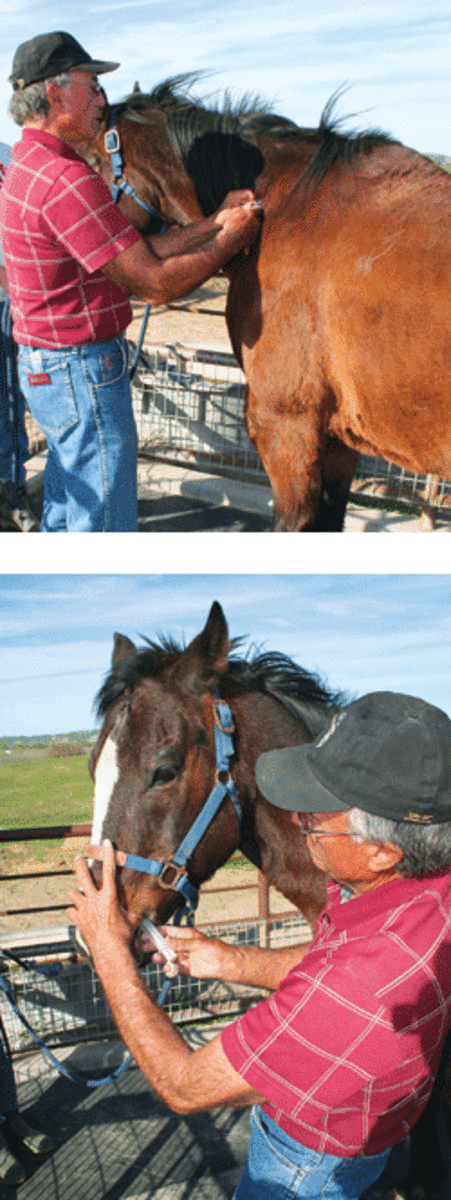
In writing a monthly veterinary column about horses and horse problems, I’m often faced with the dilemma of what subject to address. I’ve never intended to imply how to diagnose or treat a medical problem with your horse, but rather to try and inform owners about various conditions. This month, I’ll try and communicate what I’ve observed over the years in approaches to treating and handling horses with medical problems.
Firstly, I would address my impression of horses and their natural reactions. Horses that successfully evolved did so by learning defensive and self-protective mechanisms. Studying horses in the wild shows that their first reaction to any intrusion into their space is met with suspicion and their being prepared to escape. If cornered and threatened, they’re prepared to fight.
I think these qualities are valuable to remember when approaching a horse to administer medications. Administering routine medications, such as paste wormers or vaccinations, should be done slowly and easily, and with no surprises to the horse. It really is no different than getting a colt started accepting a bit in his mouth.
Horses have a keen sense of picking up on body language and become suspicious if they detect anxiety on the part of a person. They also have very good memories. The problems I’ve seen with horses becoming difficult to medicate have usually been the result of people error. The people error is usually a product of insecurity or anxiety in doing the job, and being too hasty or intrusive and causing a negative experience.
The next time someone approaches the horse, he or she is starting off with an escalation of suspicion, and pretty soon you can have a “mission impossible” scenario. In earning a horse’s confidence, one has to be confident yourself in what you’re doing. Take your time, and never try to fool or “trick” a horse. You’re not as fast as a horse, especially a suspicious one.
I’ve become more aware of these generalities in treating horses over the years, and have sometimes altered my advice on treatment accordingly. If there is a procedure that is uncomfortable, I don’t hesitate to use sedation to minimize discomfort and bad memories on the horse’s part. I don’t advise any repeated treatment procedure that doesn’t end with a calm, confident atmosphere. Stay friends with your horse.










